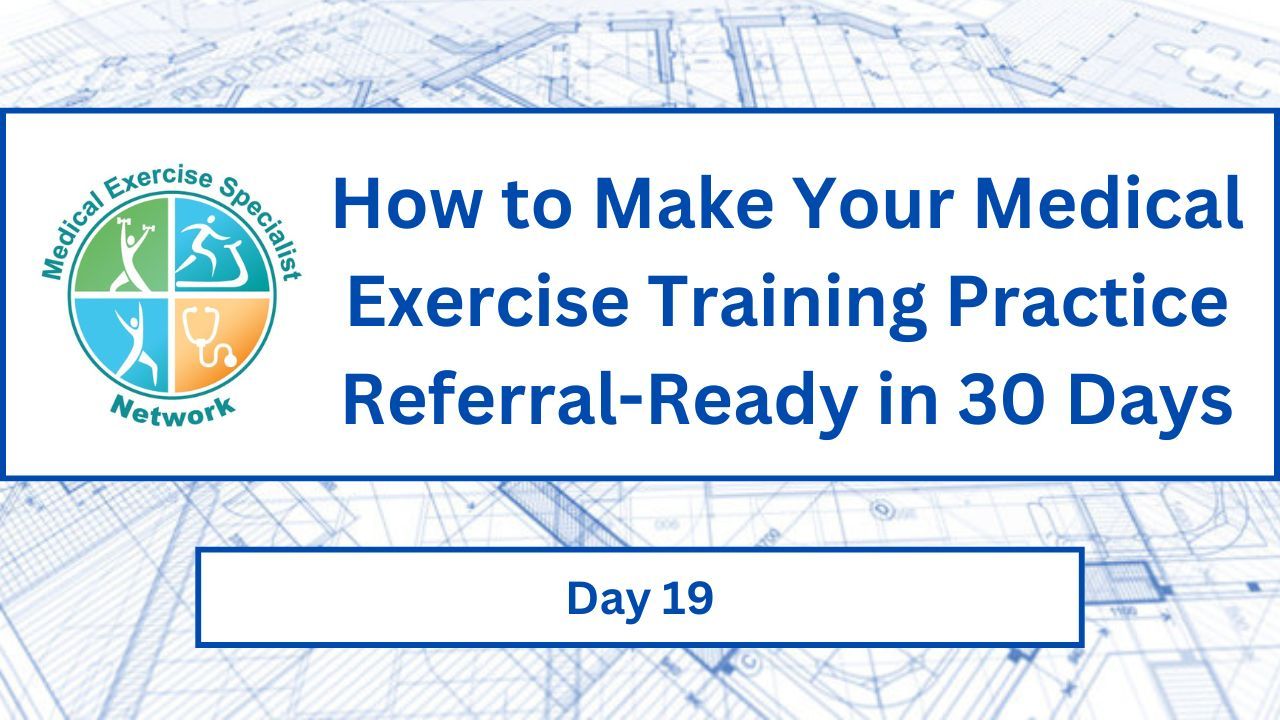Day 19 - Speak MDs Language. Earn Their Trust

You can deliver amazing results — but if you can’t communicate them in a way that medical professionals understand and trust, you’ll miss out on referrals.
On Day 19 of the Referral-Ready Challenge, we’ll help you learn the language of healthcare so your documentation and communication stand out for all the right reasons.
Medical professionals don’t want fluff — they want:
- Objective data
- Outcome-focused updates
- Clear and concise documentation
- Terminology that fits their clinical framework
In this session, you’ll learn:
✅ The most important medical terms and acronyms to know
✅ How to structure your documentation like a healthcare provider
✅ How to avoid fitness jargon and speak with clinical clarity
📍 Join us Tuesday, June 17 at Noon ET
Let’s build your communication credibility — and make you the MedExPRO they take seriously.
👉 Register now at www.CrackingTheCode.net
Here are details on the Language of Healthcare and its usage by MedExPROs
- Why Language Matters
- Medical professionals listen for clarity, objectivity, and results.
- Using appropriate terminology builds credibility, trust, and referral potential.
- Poor communication = missed opportunities for collaboration.
- Key Differences: Fitness Language vs. Healthcare Language
|
Fitness Terms |
Healthcare Equivalent |
|
“Workout” |
“Exercise intervention” |
|
“Client progress” |
“Functional outcome improvement” |
|
“Soreness is normal” |
“Post-exercise delayed muscle response” |
|
“Program design” |
“Exercise plan of care” |
Identify the fitness jargon you might use and may need to eliminate.
- Core Documentation Elements Doctors Expect
Review the three critical documentation pillars:
- Objective Data: Vitals, ROM, strength testing, gait analysis, etc.
- Functional Outcomes: How the client’s ability to perform daily activities or ADLs has improved.
- Medical Relevance: Tie outcomes back to the referring provider’s goals (e.g., reduced fall risk, improved glucose control, post-surgical recovery support).
- Common Medical Terms and Acronyms to Use Confidently
Provide a curated cheat sheet of essential terms:
- Dx (Diagnosis), Rx (Treatment Plan), Hx (History), Fx (Function), ADL (Activities of Daily Living)
- Terms like post-op, hypertensive, weight-bearing status, functional limitation, neuromuscular control, etc.
Include usage examples and help attendees practice crafting simple sentences using these terms.
- Sample Progress Note Comparison
Poor Version:
"John has been working hard. He’s stronger and more motivated."
Strong Version:
"Client demonstrates a 20% improvement in lower body strength (measured via sit-to-stand test), and now independently ascends stairs without rail support. Reports decreased pain (VAS 6 → 2)."
- Quick Wins to Improve Communication Immediately
- Replace “client feels better” with specific outcomes.
- Use bullet points for clarity in reports.
- Tie progress to functional goals like ambulation, stair negotiation, or return to work.
- Always sign documentation with full credentials.
Download your "Fitness to Medicine Language CHEAT SHEET" below:
https://www.postrehab.com/offers/FqoU2Gdx
Get Medical Exercise Training guidelines and updates!
Build your practice with tips learned over 28+ years teaching MedXPROs around the world!!
